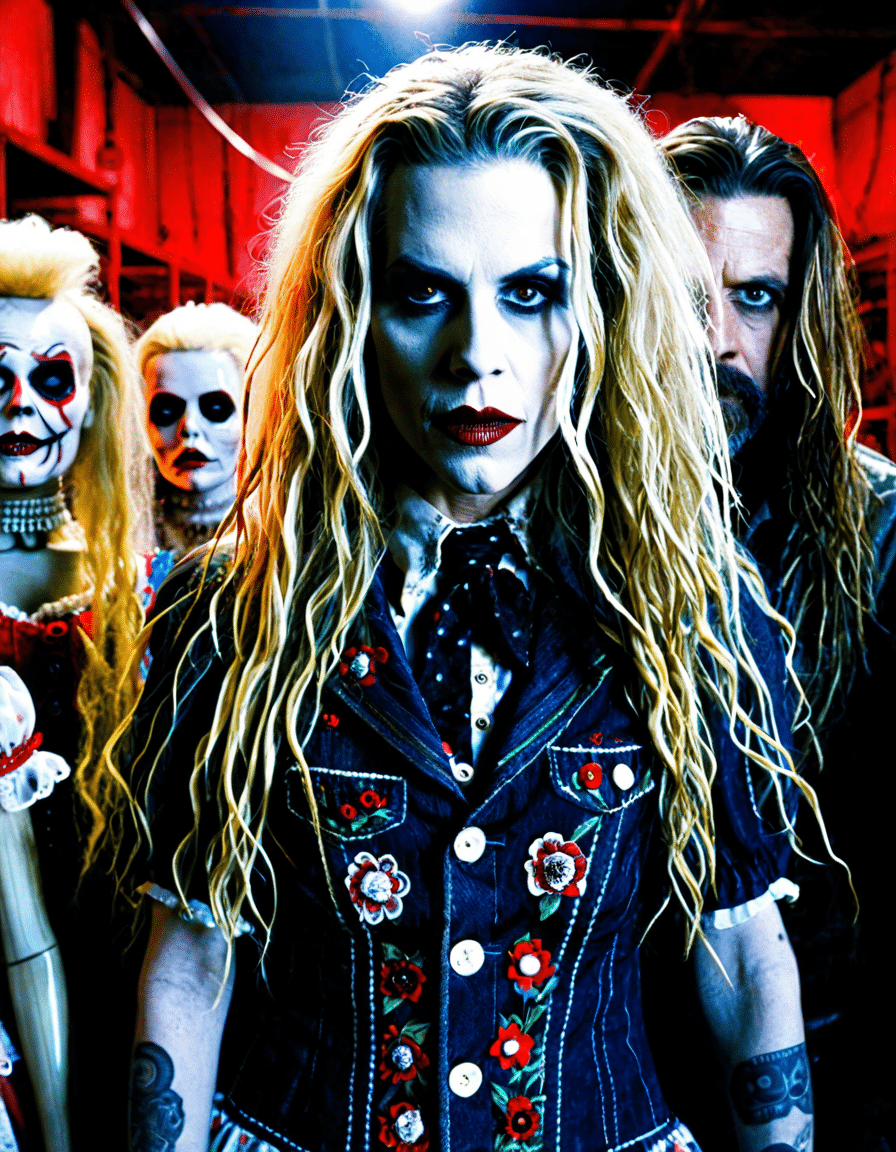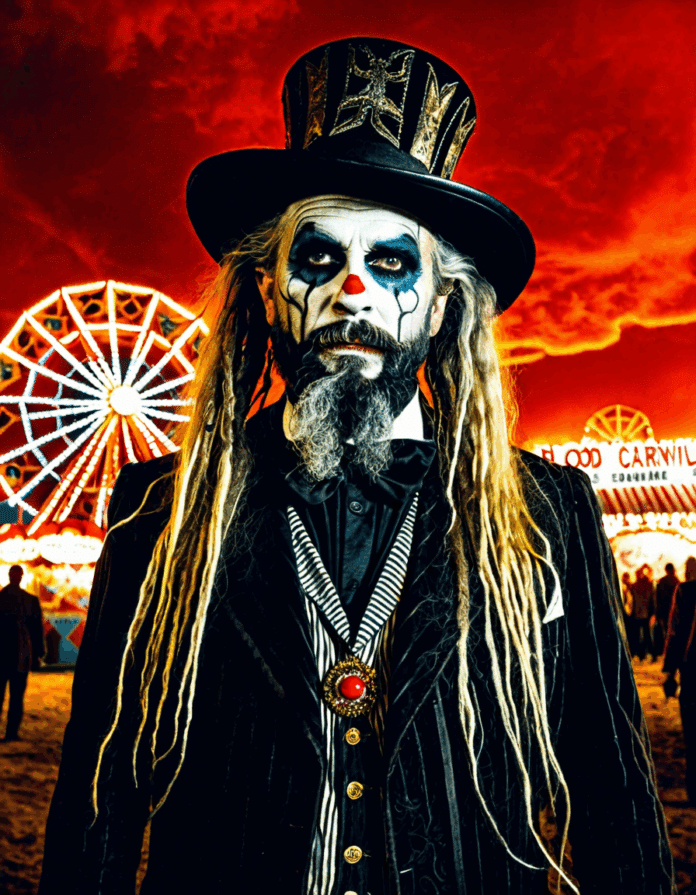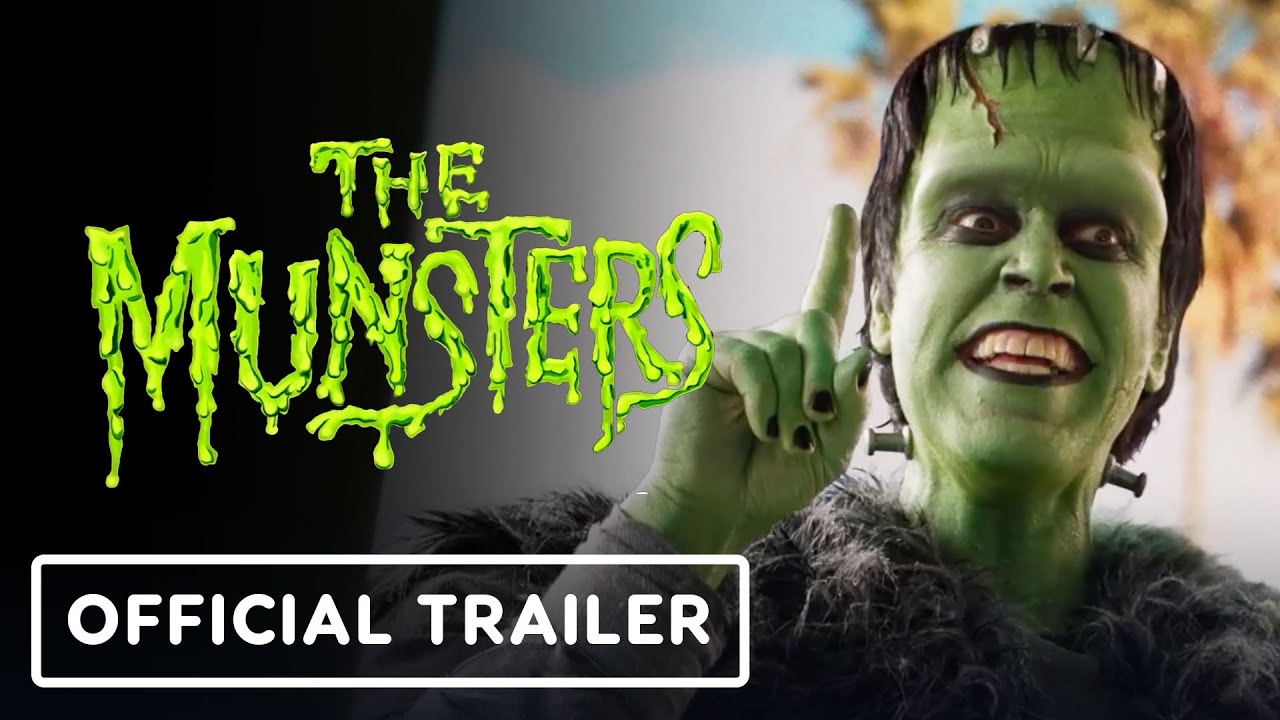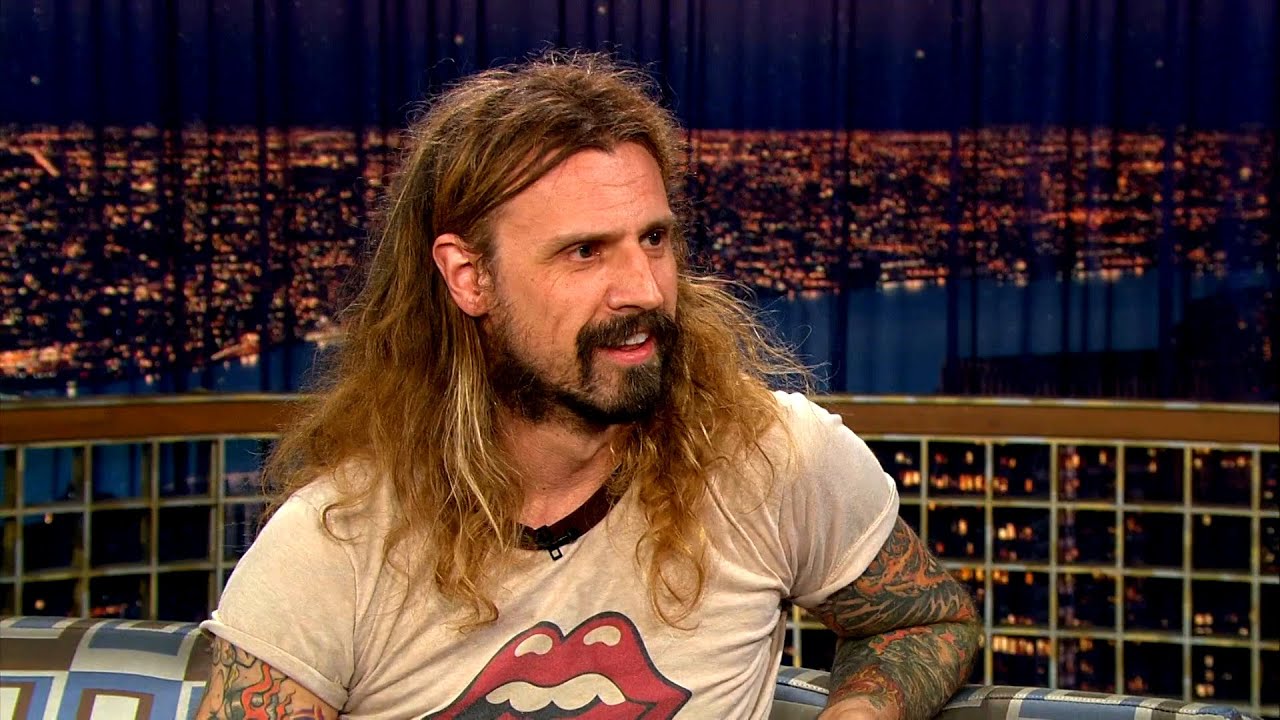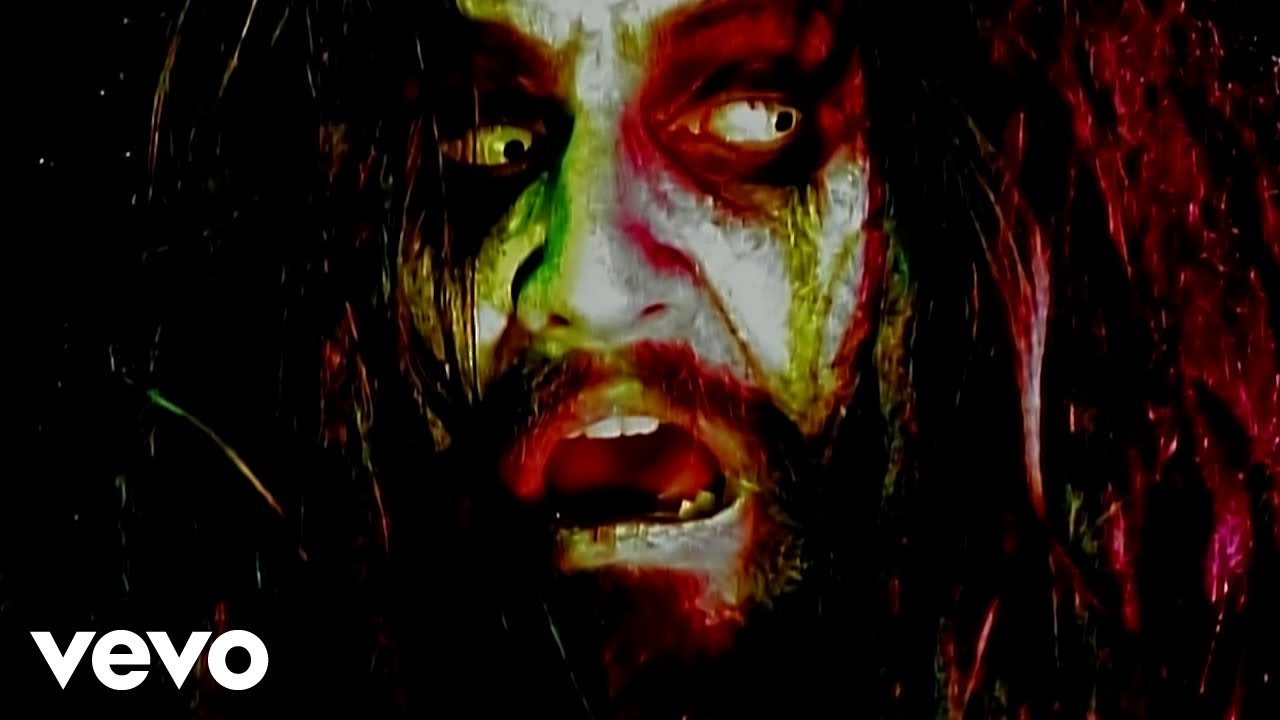When you think of Rob Zombie movies, it’s hard not to feel a mix of admiration and outrage. His films are like a good pumpkin spice latte — they provoke strong opinions. Sometimes you love ’em, sometimes you hate ’em, but one thing’s for sure: Zombie’s unique fusion of grisly aesthetics, brutally honest narratives, and heartfelt tributes to horror’s past have given horror cinema a much-needed jolt. So grab your popcorn (and maybe some holy water), as we explore seven Rob Zombie films that push the boundaries of horror film artistry and contribute significantly to the genre’s landscape.
1. House of 1000 Corpses (2003)
Zombie kicked everything off with “House of 1000 Corpses,” and boy, did he make a statement! Think of it as a wild roller coaster ride that’s both exhilarating and terrifying. This flick pays homage to masters like Tobe Hooper and George A. Romero while tossing in a splash of psychedelic flair straight out of 1970s grindhouse films. The film’s chaotic energy and vibrant colors complement its grotesque themes, pulling viewers into a world where surrealism meets horror.
With a soundtrack that ranges from eerie to downright head-banging, this film doesn’t just set a benchmark—it shatters it. Its mix of gore and humor reminds audiences to embrace a madness that’s as captivating as it is disturbing. If you’re ready to meet the eccentric and terrifying Firefly family, this film is a must-watch — but maybe not right before bedtime!
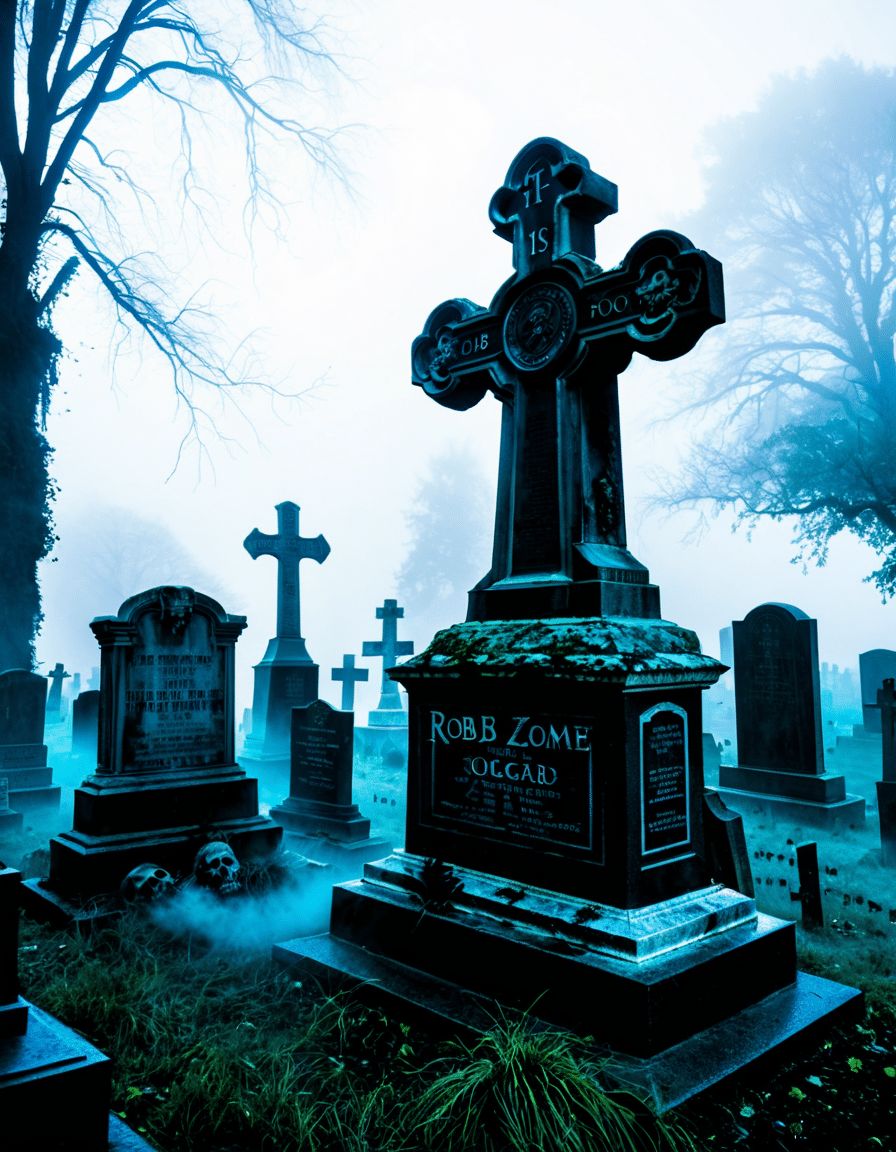
2. The Devil’s Rejects (2005)
Taking things to the next level, “The Devil’s Rejects” is often regarded as one of Zombie’s finest works, a film where morality takes a backseat. It’s not your average horror tale with a clear-cut good versus evil depiction, akin to the narratives found in Guy Ritchie movies. Instead, we have the Firefly family—anti-heroes you somehow end up rooting for despite their despicable actions. This film tackles the dark side of human nature and gives depth to its characters, making it a landmark in horror cinema.
Critics praise its raw depiction of violence, steering away from pointless gore fests. Zombie designs the narrative to draw you in, forcing you to grapple with complex human emotions alongside absolute horror. That’s a bold move in a genre often reliant on simplistic narratives!
3. Halloween (2007)
Next up is “Halloween,” where Zombie dared to revisit a classic that many believed was untouchable. Instead of merely rehashing what made the original iconic, he took a deep dive into Michael Myers’ childhood. By exploring his backstory, Zombie sheds light on themes of trauma and psychological turmoil, reminiscent of character exploration in Justin Long movies. And, let’s be real—who wouldn’t want to know what molded the infamous slasher into what he became?
This flick ensures that audiences question not just the monster but the circumstances that create them. In a way, it challenges your perception of evil, making you ponder deeper questions rather than just grinding your teeth at the horror unfolding onscreen. It’s a fresh take that injects new life into the tired slasher formula.
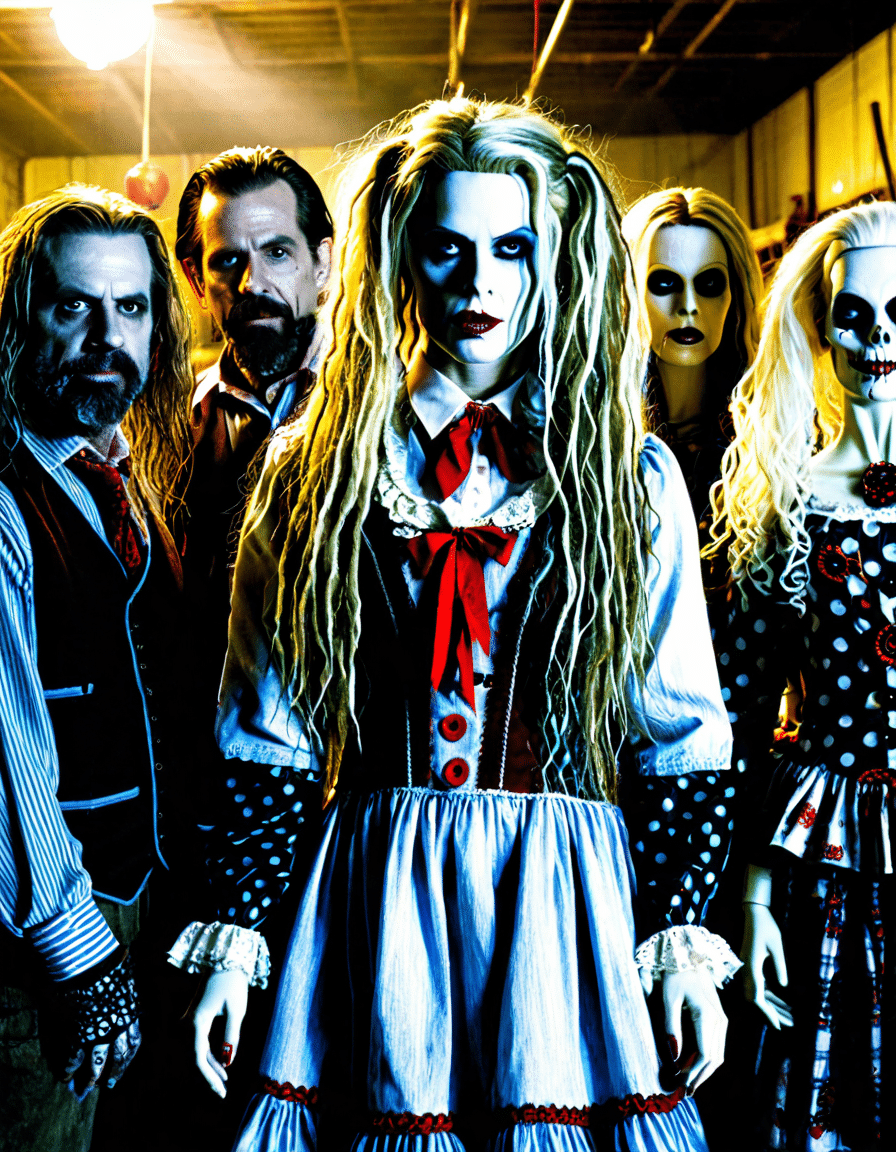
4. Lords of Salem (2012)
“Lords of Salem” stands out as an artistically daring venture for Zombie, weaving a psychedelic tapestry filled with witchcraft and psychological torment. Its avant-garde approach to storytelling reflects influences from surrealist art, similar to the disturbing scenes of Jack Nicholson movies like “The Shining.” This film flips the narrative, throwing audiences into a dreamlike sequence that blurs reality and nightmares.
Through haunting visuals and unsettling ambiance, Zombie beckons viewers to confront their fears. The film confronts societal anxieties regarding witchcraft and paranoia, layering horror with deeper philosophical questions. It’s not just about scares; it compels us to explore the very fabric of human experience.
5. 31 (2016)
In “31,” Zombie explores the absurdity of violence and the lengths to which people will go when faced with survival. The film throws a group of carnival workers into a hellish scenario, battling an army of psychopathic killers. Similar to the psychological terrors depicted in Kevin Bacon movies, this film navigates human fear on multiple levels.
Zombie delivers thrills while provoking thought about the entertainment industry’s often-gory spectacles. By critiquing our desensitization to violence, he invites an introspective look at societal decay. It’s horror, but with a hefty dose of commentary about our collective conscience.
6. Three from Hell (2019)
Continuing the saga of the Firefly family, “Three from Hell” sees Zombie further develop themes of loyalty and survival. Fans of Jack Black movies will appreciate the film’s dark comedic tone juxtaposed against horror, creating a unique experience that highlights the complexities of familial bonds.
With character-driven storytelling at its core, Zombie effectively explores the dynamics of violence and camaraderie. Intriguingly, the film also serves as a homage to his earlier works while standing firmly on its own two feet. It’s the ultimate celebration of the Firefly family that viewers can’t help but be charmed by.
7. The Munsters (2022)
Now, let’s switch gears with “The Munsters,” a considerable departure from traditional horror. In this flick, Zombie showcases his versatility by blending humor with macabre themes, kind of like the tonal shifts we’ve seen in some Jack Black movies. While it’s lighter and more family-friendly than his previous works, it still oozes with the dark allure that fans have come to love.
By showcasing the quirks of this iconic family, Zombie reinvents the classic characters for a modern audience. The film proves that horror can be lighthearted while still retaining its eerie elements, paving a way for new interpretations of what horror can be.
Embracing the Artistry of Horror Through Rob Zombie’s Lens
Rob Zombie movies illustrate a rich tapestry of dark humor, chilling creativity, and psychological depth. Each film stands as a testament to the horror genre’s capacity for storytelling and emotional resonance. They encourage audiences to confront fears while challenging traditional horror tropes. From the screams of Halloween to the laughs in The Munsters, Zombie’s distinct voice continues to carve its place in horror history.
As we venture into 2026, Zombie’s contributions have paved the way for new filmmakers. They’re now inspired to explore their unique narratives in the wild landscape of horror cinema. So, whether you’re a die-hard fan or a skeptical newcomer, these films remind us that horror isn’t just about what scares us—it’s also about what speaks to us. Dive into the twisted world of Rob Zombie movies and discover the artistry that awaits!
Rob Zombie Movies That Redefine Horror Film Artistry
A Wild Journey Through Horror
Rob Zombie movies aren’t just films; they’re full-fledged experiences that grip viewers from the get-go. Did you know that his direction style is heavily influenced by his background in music? Just like Saitama mastering his craft, Zombie infuses his films with rhythmic storytelling that beats with adrenaline. One of his notable films,House of 1000 Corpses, launched him into the horror spotlight and showcased his talent for dark humor and vivid imagery.
Zombie’s films often remix classic horror tropes, kind of like how The Neverending Story reimagined fantasy for a new generation. This unique approach appeals to fans who chase that nostalgia alongside fresh scares. Plus, his partnership with actors like Sheri Moon Zombie isn’t just for show; it resonates with authenticity and passion, much like Rosee Divine in her projects, emphasizing a strong creative bond that enhances the narrative depth.
Artistic Inspirations and Distinct Aesthetics
When you dive into the world of Rob Zombie movies, you’ll notice they’re imbued with a gritty, heavy metal aesthetic. This vibe mirrors his own musical roots, making his films feel like a visual concert experience—imagine the raw intensity of “Spider-Man: No Way Home” but twisted through a horror lens. The use of older, retro settings alongside jarring modern-day shock elements allows audiences to dislocate their expectations. From aged-looking scenery to the striking use of colors, he creates a sense of immersion that’s hard to shake off.
It’s fascinating how Zombie infuses social commentary within his narrative, peeling back the layers of his characters much like one would with Jennifer Lawrence’s height—it( reveals surprising insights when looked at in different contexts. His mastery in addressing complex themes, whether it’s family, trauma, or society’s underbelly, emphasizes the artistry involved in his filmmaking process. Just as Porcelain art involves careful crafting, so too do his horror tales—delicate, yet powerful.
So next time you hit play on a Rob Zombie movie, keep these tidbits in mind. They’re beautifully crafted horror tales masquerading as escapism, each packed with rich trivia that’s sure to provoke thought and discussion long after the credits roll. Whether you’re a die-hard fan or just dipping your toes into his filmography, the layers and thrills are bound to resonate with both casual viewers and horror enthusiasts alike.
